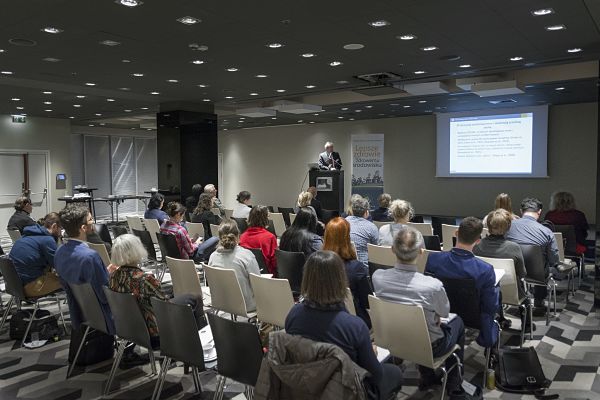The Green 10 coalition, which HEAL is a part of, encourages the President of the European Parliament Roberta Metsola upon her re-election to put the climate, biodiversity and pollution emergency at the forefront of her tenure.
HEAL recently organised two events, one in Poland, one in Germany, to present the latest evidence on how air pollution affects our health, and why children are particularly at risk.
Air pollution is responsible for one in nine deaths worldwide, and touches everyone — 92% of the people live in places that do not meet World Health Organisation air quality guidelines. It should thus not come as a surprise that air pollution, and the growing evidence of its adverse health effects, has caused major headlines in both Germany and Poland throughout the years. But knowledge among decision makers, journalists and the general public about the full extent of health risks associated with current air pollution levels is still incomplete, and more information is needed.
To tackle these issues head on, HEAL together with the Deutsche Umwelthilfe (Environmental Action Germany, DUH) hosted an expert workshop on the science behind the health impacts from air pollution on 22 November 2017. The workshop, which brought together about 50 stakeholders, aimed to give a comprehensive picture of all those health impacts for which a clear link to air pollution has been established. Next to the more well-known impacts such as stroke, heart disease, lung disease and cancer, experts also presented evidence for negative effects of air pollution on diabetes, dementia, prenatal health and pregnancy. Presentations by the German Environmental Agency (Umweltbundesamt) and the World Health Organization (WHO) further stressed that current levels of air pollution in Germany are clearly associated with a magnitude of negative health outcomes.
Another example of how HEAL continuously pushes for greater action towards better air quality is a recent conference focusing on the effects of air pollution on children’s health, organised by HEAL Poland. This event on 20 November, entitled “Air pollution and children’s health”, brought together Polish public health experts, politicians, non-governmental organisations and local governments to emphasize the importance of engaging the medical community in the discussion on the adverse health effects of smog, as well as patient education and supporting initiatives seeking effective legal regulations.

Presentation by Prof. Wojciech Hanke, national environmental health consultant
The conference – which was endorsed by UNICEF, the Children’s Health Centre, the Polish Association of Children’s Pneumology, the National Institute of Public Health and the Polish Allergology Society – saw many prominent doctors, professors and government representatives discussing different angles and solutions to air pollution in Poland. Highlights of the event included video speeches and presentations from Prof. Frederica Perera (Columbia University, USA); Prof. Wojciech Hanke (national environmental health consultant in Poland); Prof. Bolesław Samoliński (Warsaw Medical University); Prof. Henryk Mazurek (Institute of Tuberculosis and Lung Diseases in Rabka); Dr. Piotr Dąbrowiecki (Military Medical Institute); Dr. Monika Rusin (Medical University of Silesia); Dr. Elif Dagli; Dr. Sasa Milicevis; Magdalena Kapuśniak (Department of Environmental PRotection of the Marshal’s Office in Katowice); and Polish MP Gabriela Lenartowicz.
Other resources:
![]() Programme of the event organised by HEAL in Germany in German and English
Programme of the event organised by HEAL in Germany in German and English
![]() Programme of the event organised by HEAL Poland
Programme of the event organised by HEAL Poland
![]() For more information and resources on air pollution in Poland, please visit our HEAL Poland website http://healpolska.pl/
For more information and resources on air pollution in Poland, please visit our HEAL Poland website http://healpolska.pl/



